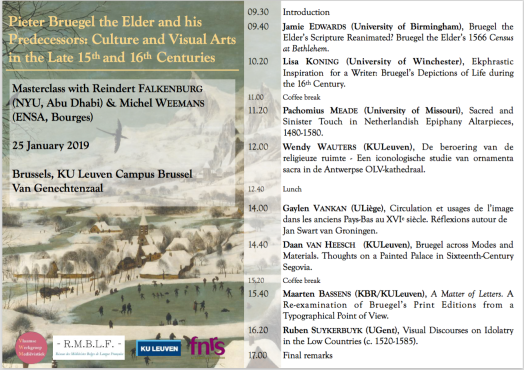Ce colloque vise à appréhender toute la gamme des socialisations possibles de l’activité d’écrire sur le passé dans les villes des sociétés médiévales et modernes, tant en Europe que dans les mondes islamiques. On entend ici, en effet, l’activité historienne au sens large : chroniques, histoires de villes, de sanctuaires, de monuments, notations dans des registres de villes ou de communautés, livres de famille italiens ou allemands, journaux individuels, généalogies, mémoires, inscriptions sur des monuments pérennes ou éphémères, en somme tout écrit fixant un récit du passé, à partir du moment où s’y trouve engagé un rapport à la ville. Il faut y inclure aussi les pratiques d’archivage et les pratiques de collection qui peuvent accompagner la réalisation d’écrits sur le passé.
Lors du colloque, on voudrait conjoindre dans l’analyse les histoires patentées et bien d’autres écrits dans lesquels on trouve des récits historiques – mais qui ne se présentent pas obligatoirement comme tels. On s’intéressera du reste tout particulièrement, dans ces écrits, aux modalités de définitions de l’activité historienne, à ses procédures de légitimation, ainsi qu’à la mobilisation éventuelle, qu’elle soit implicite ou explicite, d’autres travaux historiques. L’élargissement du spectre des écrits pris en compte rend possible l’observation de la circulation des textes, des références, des modèles au sein même de l’espace urbain, sans présupposer que cette circulation se ramène à la diffusion de pratiques savantes à d’autres éléments du corps social.
Depuis une quarantaine d’années et les propositions fondatrices de Roger Chartier et Armando Petrucci, les historiens ne cessent de mettre en lumière combien les sociétés urbaines à partir du Moyen-Âge ont été modelées par une culture écrite qui imprime sa marque aussi bien sur l’organisation politique que sur la vie économique, sociale et culturelle citadine. Cette culture écrite, liée aux échanges commerciaux, aux développements d’appareils de pouvoirs qui sécrètent des administrations, et à un fort encadrement ecclésiastique, qui implique entre autres le développement de l’offre éducative, a permis à des fractions substantielles quoique minoritaires de la population urbaine – notables puis couches supérieures de l’artisanat par la suite – l’accès à l’alphabétisation et à la maîtrise des codes qui permettent d’envisager la production de récits sur le passé. Cette culture écrite ne saurait être réduite à ce que les historiens ont pris l’habitude d’appeler les « écritures pragmatiques » – écrits de gestion, actes notariés – par différenciation d’avec la culture savante. Bien que les villes n’y soient pas dotées d’institutions propres et que l’alphabétisation y soit moins développée qu’en Europe, le monde musulman des époques médiévale et moderne connaît des processus sans doute comparables.
Aussi s’agit-il avec ce colloque de considérer l’activité historienne comme une ressource mobilisée par des individus, des communautés, et des institutions, dans le cours de la vie sociale des cités. On cherchera, au travers des communications, à rassembler le plus de connaissances possibles sur la sociologie des scripteurs, les enjeux qui président à leurs écrits, les lieux – sociaux, ou scripturaires – dans lesquelles des histoires sont inscrites de manière privilégiée – jusque, parfois, dans les registres des notaires, certains tenant chronique à même les répertoires de leurs actes. On vise par là à comprendre les modalités réciproques de fabrication des identités urbaines et des identités sociales de ces scripteurs, et à mesurer la place que tient cette activité historienne dans les dynamiques urbaines. On s’intéressera aussi aux liens entre l’histoire telle qu’elle s’écrit en ville et d’autres foyers – monastiques, aristocratiques, curiaux – d’historiographie.
Ce colloque est organisé par le CHISCO de Nanterre et l’équipe Pouvoirs, savoirs et société de l’université Paris 8, dans le cadre d’un appel à projets du labex Les Passés dans le présent.
Comité d’organisation :
Anne Bonzon, Boris Bove, Franck Collard, Emmanuelle Tixier du Mesnil, Caroline Galland, Benjamin Lellouch, Nicolas Schapira
Les propositions de communication seront envoyées en fichier joint à l’adresse suivante : nschapira@parisnanterre.fr avant le 15 février 2019.
y accéder en se connectant sur la page d’accueil de google (gmail en haut à droite).
Le mot de passe est le suivant : Paris8Nanterre







